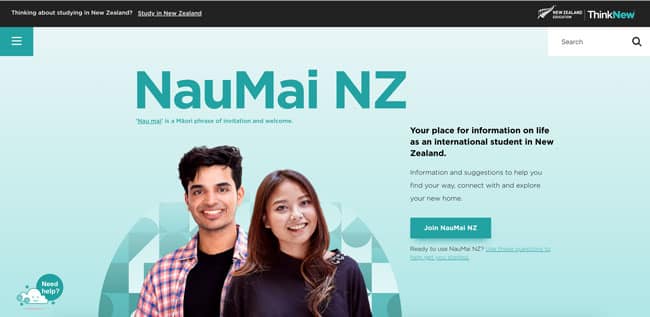New Zealand puts the emphasis on student experience
One year ago, New Zealand Minister of Education Chris Hipkins announced the New Zealand Education Strategy 2018–2030 at the annual NZIEC conference. The 2019 edition of the conference – the 28th New Zealand International Education Conference & Expo – is taking place in Auckland this week, and it provides a natural opportunity to assess the early implementation of the country’s ambitious strategy through its first year.
National-level strategies such as these are often accompanied by large goals in terms of enrolment growth or economic impact, and New Zealand’s is no exception in this respect. The strategy for 2018-2030 aims to build the economic value of the sector to NZD$6 billion (US$4 billion) by 2025, up from just over NZ$5 billion as of 2017.
Any such goals for New Zealand, however, are framed in the context of pursuing sustainable levels of growth, and with an emphasis on high-quality provision. And this idea finds its expression in another key aspect of the New Zealand strategy: a commitment to increasing student satisfaction rates and to delivering an outstanding student experience.
One year in to the implementation of its new strategy, New Zealand’s commitment to strengthening the quality of the student experience is clear – and it is equally clear that government and industry stakeholders see this as an important point of differentiation for New Zealand in the international marketplace.
“The launch of the International Education Strategy at this conference last year resulted in some important cross-government work,” said Minister of Education Chris Hipkins in his opening remarks at NZIEC 2019 in Auckland this week. “For example, NauMai New Zealand, the digital hub designed to support students. NauMai is a fantastic example of how we can improve the student experience and it make it the best that it possibly can be while international students are here in our care. It is an initiative that is distinctly New Zealand – that will help set us apart from other countries because it clearly demonstrates our commitment to the well being of international students.”
Education New Zealand Board Chair Steve Maharey added in his comments to the NZIEC 2019 delegates, “We need to give a really excellent student experience, focusing on looking after international students from the time they think they want to come here to long after they have gone home. Thinking about how to enrich their lives by the fact that they were part of ours.”

Indeed, New Zealand has taken some impressive steps in the first year of its new strategy, including, as the Minister referenced in his comments, the development and launch of NauMai NZ, “the official government student experience and wellbeing platform for international students who are studying in New Zealand or will soon arrive.”

NauMai NZ is a comprehensive pre-departure and orientation resource for prospective and incoming students, covering topics ranging from visas and immigration to culture and lifestyle and more practical matters of day-to-day life such as money and banking, housing, and government.
In addition, the Ministry of Education is providing targeted funding for additional initiatives under the International Student Wellbeing Strategy. The programme provides for an annual cycle of grants designed to support improved outcomes for visiting students in terms of their economic wellbeing, education outcomes, health and wellness, and inclusion – that is, for initiatives that help ensure that international students are “welcome, valued, and socially connected” during their studies in New Zealand.
Strengthening the policy framework
The cross-government work that Minister Hipkins refers to has also extended to some key regulatory and policy frameworks in New Zealand this year – each of which can again be directly linked to student outcomes and student wellbeing.
Initiatives to date include:
- The New Zealand Qualifications Authority (NZQA) has strengthened English language proficiency requirements for international students. In effect as of 1 August 2019, the related changes, which are addressed formally under the NZQF Programme Approval and Accreditation Rules, aim to clarify and strengthen the grounds through which international students may demonstrate English proficiency when applying to study in New Zealand.
- The Ministry of Education has introduced additional changes to New Zealand’s Pastoral Care of International Students Code of Practice. The amendments came into effect as of 1 July 2019, and include “new contract and disciplinary protections, clearer requirements for residential caregiver safety checks, more detailed requirements for managing and monitoring education agents, and more practical transfer of care requirements for students under 18.”
- In November 2018, Education New Zealand relaunched a revamped Recognised Agency programme with a refreshed training course, supports, and requirements for agents. Roughly half of international students coming to New Zealand use agents, and ENZ’s aim is to ensure the quality of agents available to students and to provide a consistent standard of conduct.
For additional background, please see:
















